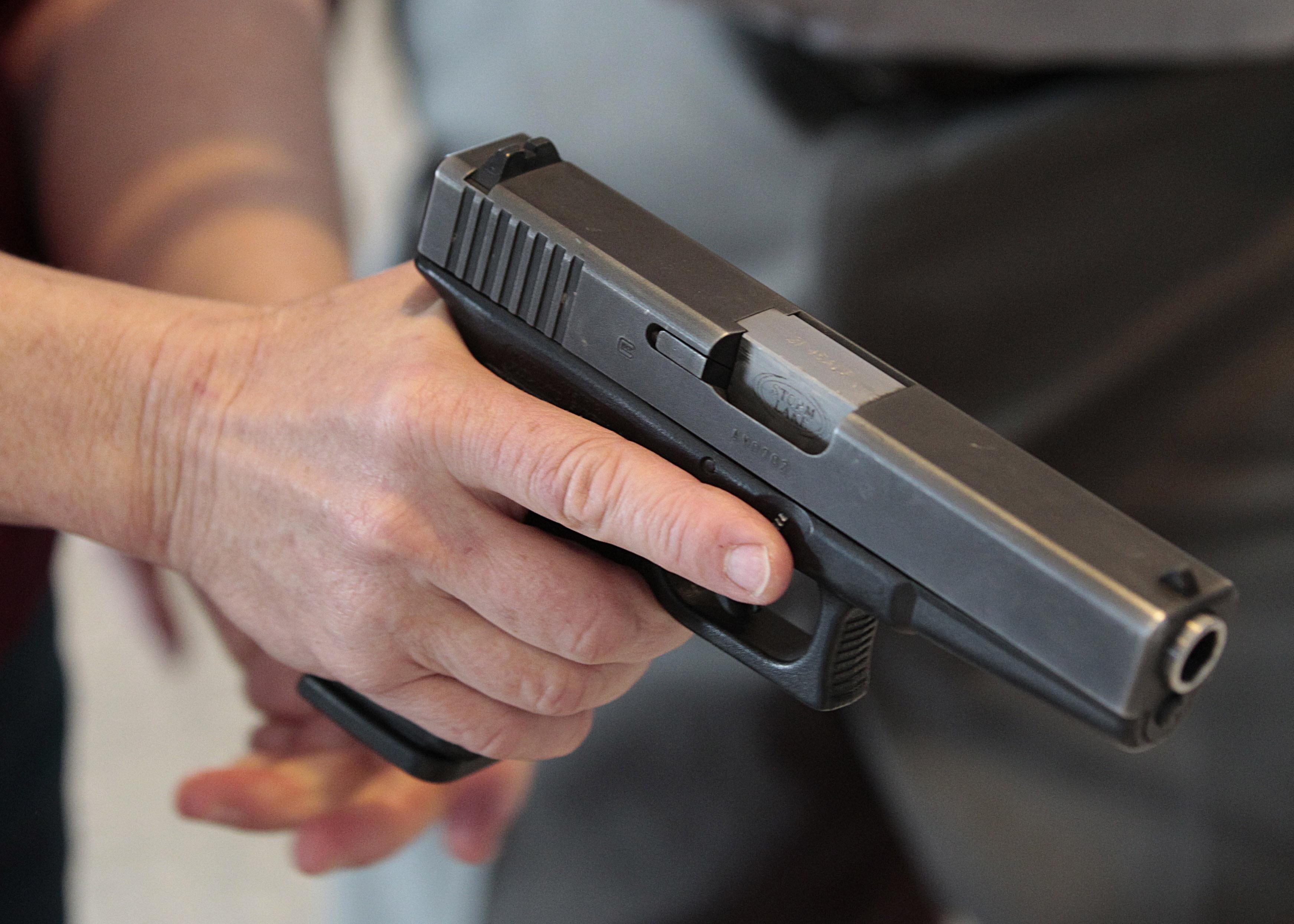A 10-year-old Northern Michigan boy has died in what local media sources are dubbing an “accidental shooting.” Though details at this point are scarce, both UpNorthLive.com and 9and10News.com report that Presque Isle County deputy sheriffs responded to reports of an accidental firearm discharge Tuesday night and found the 10-year-old boy dead of a gunshot wound. As of now, we do not know who owned the gun that killed the boy, whose hand was on the trigger when the gun discharged, how the boy came in contact with the gun, or any other details that might help us learn whether this tragedy was truly an accident.
These are all things that would be good to know, and it’s information that local reporters are in a position to get. Before stories like these make national news, they first have to be reported by local and regional news sources. These stories can be hard to cover, and might not initially look like stories at all, especially given that local cops tend to characterize these sorts of shootings as tragic mistakes that don’t warrant criminal charges.
For those of you who haven’t followed my reporting on this topic, I believe that most accidental child shooting deaths in this country are not accidents at all, but the devastating consequence of a lax approach to gun safety on the part of parents or guardians. The closer you look at stories of this type, the more similarities you find between them—the guns in question are typically left out in the open, rather than in a gun safe; the parents or guardians often overestimate their kids’ expertise with firearms—and the more preventable they appear. Reporters can help raise awareness on this topic by giving these stories more attention than they might initially seem to deserve. Here are a few guidelines on the questions to ask to make this reporting more fruitful.
Who owned the gun, and how did it get in the house? These are simple questions, but the answers can sometimes be complicated. It’s not uncommon for the gun that’s used in an unintentional child shooting to belong to a friend or relative of the homeowner, and for the homeowner to try and disclaim responsibility.
Where and how was it stored? Was the gun in a safe? If not, why not? Does the adult in question even own a gun safe? If not, why not? If an adult leaves a loaded firearm sitting out on a table in a house where children are present, and then one of those children shoots herself with the gun, is it really fair to say that nobody is responsible for the shooting?
What are my state’s child access prevention laws, and might the parent or guardian in this situation be held liable under them? The website of the nonpartisan Law Center to Prevent Gun Violence is a great resource if you’re looking to learn about child access prevention laws, which provide criminal penalties for adults who allow children to gain access to firearms. Twenty-seven states, plus the District of Columbia, currently have these laws on the books. (They vary widely in scope and severity.) Michigan is not one of them.
Could any other state laws apply in this case? Sometimes, the parents or guardians of children who unintentionally shoot themselves or others could theoretically be held liable under a state’s firearm, criminal negligence, or child abuse statutes, even if that state hasn’t explicitly passed any child access prevention laws. Could that theoretically be the case here? In Michigan, a person whose “omission or reckless act causes physical harm to a child” is guilty of child abuse in the fourth degree, punishable by up to a year in prison. Would leaving a loaded gun out where a child can find it qualify as a reckless act?
What’s the DA’s record on prosecuting so-called accidental shootings? I advocate for strict child access prevention laws because I believe they can act as a deterrent, helping to prevent other unintentional child shooting deaths in the future. But these laws are useless if they’re inconsistently enforced. If such laws exist in your area, how often does the local DA charge people under them? What sorts of people end up getting charged? What sorts of trends do you see?
Try to avoid the word “accidental.” Whether it’s fair or not, the word “accidental” in this context implies that nobody is at fault, and that the shooting couldn’t be helped. I think that’s dead wrong. These shootings generally could be prevented, if the adults in question had just followed some common-sense gun-safety procedures; their willful failure to do so means that those adults are the ones at fault. These are not accidents. Use a word like “unintentional” instead.
Previous coverage of child shootings:
There Are Way More Unintentional Child Shootings Than Anyone Thought
A Wisconsin Boy Shot His Sister. Their Father Is Facing Charges. Other States Should Take Note.
Two More Kids Were Shot With Their Relatives’ Guns. We Need to Pass Laws to Punish the Relatives.
Another “Accidental” Shooting. Another Child Dead. Another State Claims, Wrongly, That No One Is at Fault.
Is It Ever Really an Accident When a 4-Year-Old Shoots and Kills His Father?
A 4-Year-Boy Killed His 2-Year-Old Brother and the Father Was Convicted of Manslaughter. Good.
Another Day, Another “Accidental” Child Shooting Death
Another “Accidental” Child Shooting Death Shows that Child Shooting Deaths Are Not Accidental
